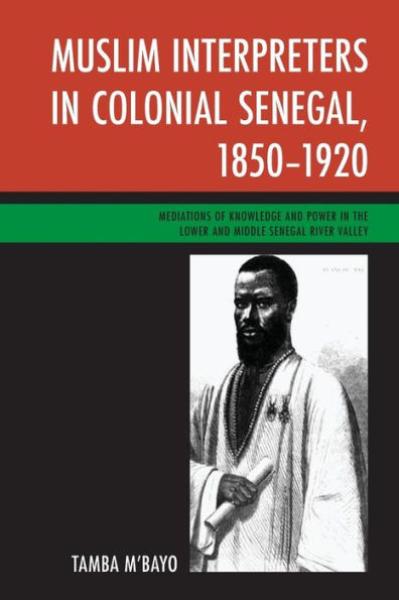Description
This book investigates the lives and careers of Muslim African interpreters employed by the French colonial administration in Saint Louis, Senegal, from the 1850s to the early 1920s. It focuses on the lower and middle Senegal River valley in northern Senegal, where the French concentrated most of their activities in West Africa during the nineteenth century. The Muslim interpreters performed multiple roles as mediators, military and expeditionary guides, emissaries, diplomatic hosts, and treaty negotiators. As cultural and political powerbrokers that straddled the colonial divide, they were indispensable for French officials in their relations with African rulers and the local population. As such, a central concern of this book is the paradoxical and often contradictory roles the interpreters played in mediating between the French and Africans. This book argues that the Muslim interpreters exemplified a paradox: while serving the French administration they pursued their own interests and defended those of their local communities. In doing so, the interpreters strove to maintain some degree of autonomy. Moreover, this book contends that the interpreters occupied a vantage position as mediators to influence the construction of colonial discourse and knowledge, because they channeled the flow of information between the French and the African population. Thus, Muslim interpreters had the capacity to shape power relations between the colonizers and the colonized in Senegal.
This book explores the intermediary functions of Muslim interpreters in Senegal to affirm their status as active historical agents in the historiography on French colonial rule in West Africa, including themes such as the intersection of knowledge and power in a colonial context and Muslim identity formation and French assimilation.
Muslim Interpreters is a valuable and welcome addition to the literature on African intermediaries under colonial rule. Dr. Mbayo marshals a vast array of archival and oral sources to describe the role of Muslim interpreters as the French moved from their outpost of Saint-Louis to expand their domination along the Senegal River valley and the hinterland of Senegal. Moving beyond the simplistic resistance/collaboration binary the book highlights the role of interpreters not only as go-between between colonizers and colonized but also as producers of knowledge with significant influence in colonial decision making.--Cheikh Anta Babou, University of Pennsylvania
Tambo M'bayo's study of Muslim interpreters in colonial Senegal is an important contribution to a growing literature on the role African intermediaries played in the elaboration and operation of the colonial state. Of these intermediaries, the most important were the interpreters. M'bayo argues that they were important as cultural brokers, as diplomats and emissaries, as the voice of the regime, and as a source of information to colonial rulers about the peoples being governed.--Martin Klein, University of Toronto, Emeritus
This book explores the intermediary functions of Muslim interpreters in Senegal to affirm their status as active historical agents in the historiography on French colonial rule in West Africa, including themes such as the intersection of knowledge and power in a colonial context and Muslim identity formation and French assimilation.
Muslim Interpreters is a valuable and welcome addition to the literature on African intermediaries under colonial rule. Dr. Mbayo marshals a vast array of archival and oral sources to describe the role of Muslim interpreters as the French moved from their outpost of Saint-Louis to expand their domination along the Senegal River valley and the hinterland of Senegal. Moving beyond the simplistic resistance/collaboration binary the book highlights the role of interpreters not only as go-between between colonizers and colonized but also as producers of knowledge with significant influence in colonial decision making.--Cheikh Anta Babou, University of Pennsylvania
Tambo M'bayo's study of Muslim interpreters in colonial Senegal is an important contribution to a growing literature on the role African intermediaries played in the elaboration and operation of the colonial state. Of these intermediaries, the most important were the interpreters. M'bayo argues that they were important as cultural brokers, as diplomats and emissaries, as the voice of the regime, and as a source of information to colonial rulers about the peoples being governed.--Martin Klein, University of Toronto, Emeritus
Last updated on
Product Details
- Rowman & Littlefield Brand
- Apr 12, 2019 Pub Date:
- 1498510000 ISBN-10:
- 9781498510004 ISBN-13:
- 234 Pages
- 9 in * 6 in * 0.53 in Dimensions:
- 1 lb Weight:




